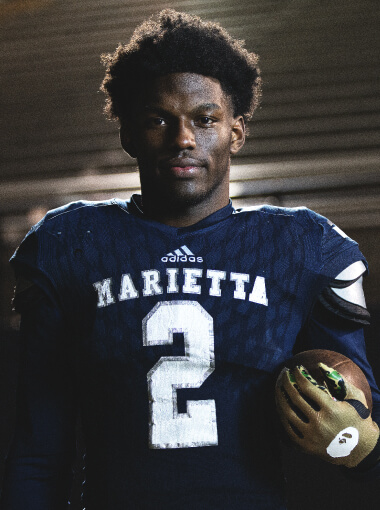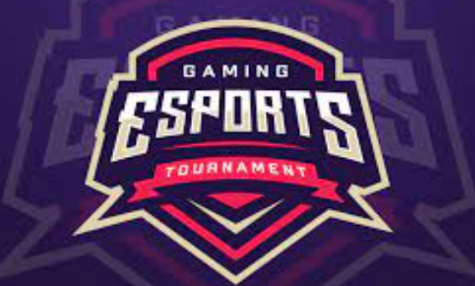The Kobe Bryant Legacy
Discussing basketball legend Kobe Bryant after his tragic death
In basketball history, there have been many players that are considered “legends” or “gods,” some of them being Michael Jordan, Lebron James, and the one and only, Kobe Bryant. Many may not be big fans of basketball, but even then, they’ve still heard about Bryant or have even said or heard others yell “Kobe!” as throwing something into a nearby trash can. Kobe has been named one of the “Best NBA Players of All Time,” winning five NBA championships with the Los Angeles Lakers. Bryant was tied with 15 All-NBA selections, and his 25 career 50-point games ranked him third all-time, behind Michael Jordan and Wilt Chamberlain.
Kobe Bryant was the son of former NBA player Joe “Jellybean” Bryant. Kobe was first drafted by the Charlotte Hornets on behalf of the Lakers and didn’t even try to hide his determination to excel the accomplishments of Michael Jordan. The Hornets had agreed that going into the draft that they would trade Bryant’s rights to Los Angeles in exchange for Vlade Divac.
Over the next 20 seasons, Kobe managed to earn 18 All-Star selections, as well as a regular-season Most Valuable Player Award in 2008 and two NBA finals MVP awards to go along with his five championship rings and two Olympic gold medals.
But in the midst of all that, a sexual assault allegation against him in 2003 would then change how people saw Kobe.
Even though Kobe was being charged with sexual assault and false imprisonment, facing life in prison, and then confessing to committing adultery with his 19-year-old accuser, Kobe’s case never made it to trial. A week before opening statements were made, the case was dismissed after the accuser informed the court that she wouldn’t testify. The woman then decided to file a separate civil suit against Bryant and agreed to dismiss the sexual-assault charge against him. Kobe then issued an apology to his accuser that was read in court by Bryant’s attorney.
Kobe’s apology read:
“First, I want to apologize directly to the young woman involved in this incident. I want to apologize to her for my behavior that night and for the consequences, she has suffered in the past year. Although this year has been incredibly difficult for me personally, I can only imagine the pain she has had to endure. I also want to apologize to her parents and family members, and to my family and friends and supporters, and to the citizens of Eagle, Colo. I also want to make it clear that I do not question the motives of this young woman. No money has been paid to this woman. She has agreed that this statement will not be used against me in the civil case. Although I truly believe this encounter between us was consensual, I recognize now that she did not and does not view this incident the same way I did. After months of reviewing discovery, listening to her attorney, and even her testimony in person, I now understand how she feels that she did not consent to this encounter. I issue this statement today fully aware that while one part of this case ends today, another remains. I understand that the civil case against me will go forward. That part of this case will be decided by and between the parties directly involved in the incident and will no longer be a financial or emotional drain on the citizens of the state of Colorado.”
The accuser’s civil suit against Kobe was then ultimately settled in March 2005.
It was around this time that Kobe decided to give himself the nickname, “The Black Mamba.” To Kobe, though, this was more than a nickname. It was an “alter-ego” that he created to get through the lowest point of his career. In his auto-documentary “Muse,” Kobe revealed that the reason he created The Black Mamba was that it was a way to deal with the struggles he was going through on and off the court in 2003 and 2004.
“I went from a person who was at the top of his game, had everything coming, to a year later, having absolutely no idea where life is going or if you are even going to be a part of life as we all know it,” Kobe said in the documentary. “I hear everything the crowd is saying. I hear it,” Bryant said following a clip in which Boston Celtics fans could be heard chanting “Kobe sucks!” “So, it’s like this place where it was my refuge is now being bombarded with all kinds of things they would say. I had to separate myself,” Kobe explained. “It felt like there were so many things coming at once. It was just becoming very, very confusing. I had to organize things. So I created The Black Mamba.”
He then went on to explain that “Kobe” was assigned to deal with his “personal challenges” and “The Black Mamba” handled the business on the court.
But even through all this, Kobe remained hugely popular among NBA fans and especially Angelenos, the only team that Bryant ever played for.
The trade that made Bryant a Laker was made possible by the team’s general manager at the time, Jerry West, who was captivated by Kobe’s “fearlessness and prodigious talent.” He was a standout at Lower Merion High School in Ardmore, Pa., outside Philadelphia. Kobe had auditioned for the Lakers in a pre-draft workout that featured a series of one-on-one drills against the former Lakers “defensive ace” Michael Cooper, who was a 40-year-old assistant coach then.
As Mr. West had visualized, Kobe did indeed help restore the Lakers to glory. He did so first alongside the Hall of Fame center Shaquille O’Neal for three consecutive NBA championships in 1999-2000, 2000-01 and 2001-02 seasons, then as the team’s unquestioned fulcrum for two more titles in 2008-09 and 2009-10. According to the New York Times, “Bryant was the central and enduring figure in one of the most gripping soap operas in modern professional team sports.”
By the time that Kobe walked away from the NBA in April 2016, after a very unforgettable 60-point farewell game against the Utah Jazz, Bryant had managed to build an unmatched legacy that persuaded the Lakers to retire both jersey numbers he wore over the two 10-season stretches, both the numbers 24 and 8.
According to news outlets, Kobe Bryant is widely expected to be inducted into the Naismith Memorial Basketball Hall of Fame in late August, the first time that he is eligible. He led the league in scoring twice and finished his career with 33,643 points in the regular season.






